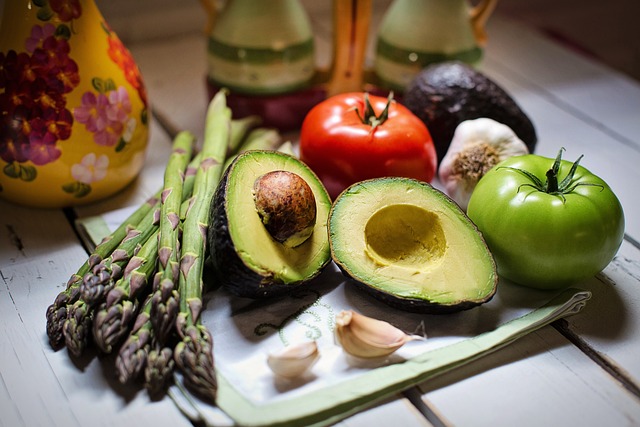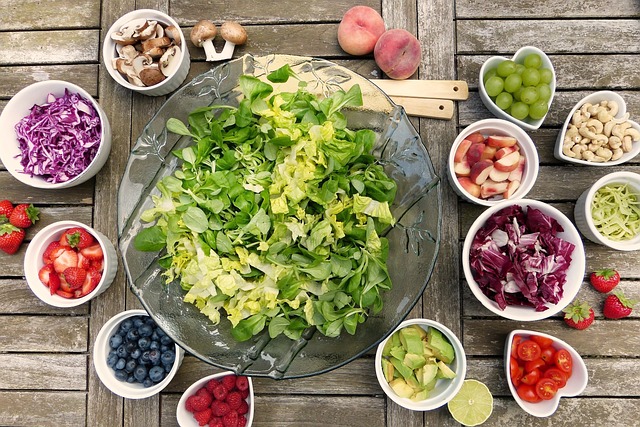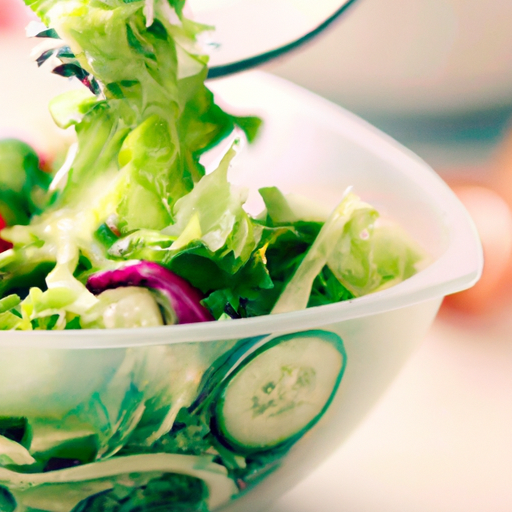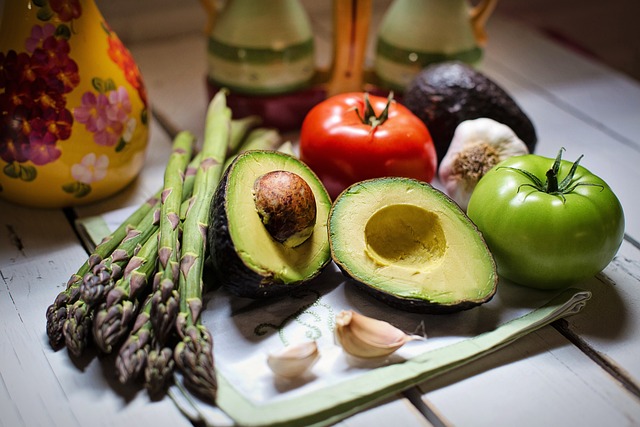Are you looking for a new approach to shed those extra pounds? Have you ever considered trying a vegetarian diet? It may surprise you to learn that a vegetarian diet can actually support weight loss in a number of ways. In this article, we will dive deep into the reasons why opting for a plant-based diet can be beneficial for your weight loss journey. You’ll discover the key components of a balanced vegetarian diet and how it can help you reach your weight loss goals.
First and foremost, a vegetarian diet is typically rich in fiber. By consuming a variety of plant-based foods such as fruits, vegetables, whole grains, and legumes, you can increase your fiber intake significantly. Fiber plays a crucial role in weight loss as it helps to keep you feeling full for longer periods of time, reducing the temptation to snack on unhealthy foods. Additionally, fiber aids in proper digestion, promoting a healthy gut and preventing constipation.
Furthermore, a vegetarian diet tends to be lower in calories compared to a diet that includes animal products. Animal products like meat and dairy tend to be higher in saturated fats and calories, which can contribute to weight gain. By eliminating or reducing these calorie-dense foods, you can create a calorie deficit that promotes weight loss. In addition, a vegetarian diet encourages the consumption of nutrient-dense foods, providing your body with essential vitamins, minerals, and antioxidants that support overall health.
Lastly, a vegetarian diet can also lead to healthier eating habits overall. The focus on plant-based foods naturally leads to a higher intake of whole foods and a reduction in processed and unhealthy options. This shift in eating patterns can improve your relationship with food and help you make better choices in the long run. With a balanced vegetarian diet, you’ll not only promote weight loss but also enjoy the numerous health benefits that come with it.
By now, you should have a better understanding of how a vegetarian diet can support weight loss. Whether you’re considering going vegetarian or simply looking to incorporate plant-based meals into your diet, focusing on whole foods and fiber-rich options can help you on your weight loss journey. In our upcoming article, we will provide you with practical tips and delicious recipes to help you get started on your path to a healthier, slimmer you.

What is a vegetarian diet?
A vegetarian diet is a dietary pattern that excludes the consumption of meat, poultry, and fish. However, it does include the consumption of plant-based foods such as fruits, vegetables, grains, legumes, nuts, and seeds. There are several different types of vegetarian diets, each with its own level of restriction.
Different types of vegetarian diets
- Vegan: This is the most restrictive type of vegetarian diet, as it excludes all animal products, including dairy, eggs, and honey.
- Lacto-vegetarian: This diet includes dairy products but excludes meat, poultry, fish, and eggs.
- Ovo-vegetarian: This diet includes eggs but excludes meat, poultry, fish, and dairy products.
- Lacto-ovo-vegetarian: This diet includes both eggs and dairy products but excludes meat, poultry, and fish.
Depending on individual preferences and ethical considerations, people may choose different types of vegetarian diets. Regardless of the type, a vegetarian diet can provide numerous health benefits, including support for weight loss.
Essential nutrients in a vegetarian diet
Contrary to popular belief, a well-planned vegetarian diet can provide all the essential nutrients your body needs. However, it is essential to pay attention to certain key nutrients to ensure optimal health.
Benefits of a vegetarian diet for weight loss
A vegetarian diet can be an effective tool for weight loss due to several reasons.
Lower calorie intake
Plant-based foods, such as fruits, vegetables, whole grains, and legumes, tend to be lower in calories compared to animal-based foods. By consuming these foods in abundance, you can create a calorie deficit, which is essential for weight loss. Additionally, plant-based foods are often rich in fiber, which can help you feel fuller for longer, thereby reducing the overall calorie intake.
Higher fiber content
Fiber is a crucial nutrient when it comes to weight loss. It adds bulk to your meals, making you feel satisfied and reducing the chances of overeating. A vegetarian diet, which is naturally high in fiber, can support healthy weight loss by regulating digestion, preventing constipation, and promoting satiety.
Reduced consumption of processed foods
Vegetarian diets typically prioritize whole, unprocessed foods. This means that you’re likely to consume fewer processed and fast foods, which are often high in added sugars, unhealthy fats, and excess calories. By opting for whole, plant-based foods, you can significantly reduce your intake of these unhealthy ingredients, thereby improving your overall health and supporting weight loss.
Building a healthy vegetarian meal plan
Creating a well-balanced vegetarian meal plan is essential to ensure you’re getting all the necessary nutrients while supporting your weight loss goals.
Choosing a variety of fruits and vegetables
Aim to include a variety of colorful fruits and vegetables in your meals. Different fruits and vegetables offer a range of essential nutrients, including vitamins, minerals, and antioxidants. By diversifying your choices, you can maximize your nutrient intake and enjoy a wide range of flavors and textures in your meals.
Incorporating whole grains and legumes
Whole grains, such as quinoa, brown rice, and whole wheat bread, are excellent sources of fiber, vitamins, and minerals. They can be incorporated into meals such as stir-fries, salads, and grain bowls. Legumes, including beans, lentils, and chickpeas, are also rich in fiber, protein, and other nutrients. They are versatile ingredients that can be used in soups, stews, salads, or even as a meat substitute in vegetarian burgers or tacos.
Including plant-based sources of protein
Protein is an essential nutrient for weight loss, as it helps to increase satiety and preserve lean muscle mass. While meat is a common source of protein, vegetarians can obtain adequate protein from plant-based sources such as tofu, tempeh, seitan, legumes, nuts, and seeds. Including a variety of these protein-rich foods in your meals can help meet your daily protein needs and support weight loss.
Key nutrients to focus on
While a well-planned vegetarian diet can provide most essential nutrients, there are a few key nutrients that vegetarians need to pay close attention to:
Protein sources in a vegetarian diet
Ensuring an adequate intake of protein is crucial for vegetarians, as plant-based sources of protein are often incomplete, lacking certain essential amino acids. To ensure a complete protein intake, it is essential to consume a variety of protein-rich plant foods throughout the day. Combining different plant protein sources, such as grains and legumes or legumes and nuts/seeds, can help provide a complete range of amino acids.
Calcium and vitamin D
Calcium and vitamin D are essential for maintaining strong bones and teeth. While dairy products are a common source of calcium, vegetarians can obtain it from plant-based sources such as fortified plant milk, tofu, leafy green vegetables, and calcium-fortified foods and beverages. Additionally, vitamin D can be synthesized by the body when exposed to sunlight. However, it may be necessary to consider a vitamin D supplement, especially in areas with limited sunlight exposure.
Iron and B vitamins
Iron is important for transporting oxygen throughout the body. While vegetarians can obtain iron from plant foods such as legumes, whole grains, tofu, and dark leafy greens, it is important to combine these foods with a source of vitamin C, as it enhances iron absorption. Additionally, vegetarians, particularly vegans, should pay attention to vitamin B12, which is mostly found in animal products. Fortified foods or a B12 supplement may be necessary to meet the daily requirements.
Planning meals and snacks
Planning your meals and snacks is crucial to ensure you’re making healthy choices while following a vegetarian diet.
Portion control
While a vegetarian diet can be beneficial for weight loss, portion control is still important. It’s easy to overeat, even on a plant-based diet, especially if you’re consuming calorie-dense foods like nuts, seeds, and oils. Paying attention to portion sizes and practicing mindful eating can help you maintain a calorie deficit for weight loss.
Meal prepping and planning
Meal prepping and planning can save you time and make it easier to stick to your vegetarian diet. Set aside time each week to plan your meals, create a shopping list, and prepare some meals or ingredients in advance. This way, you’ll have healthy options readily available and avoid relying on unhealthy processed foods or takeout meals.
Healthy vegetarian snack options
When cravings strike between meals, it’s important to have healthy vegetarian snack options available. Fresh fruits, vegetables with hummus, yogurt with nuts/seeds, or homemade energy bars are excellent choices. Avoid relying on processed snacks that are high in added sugars and unhealthy fats.

Recommended exercise and physical activity
Combining a vegetarian diet with regular exercise is a great way to support weight loss and maintain overall health.
Cardiovascular exercises for weight loss
Cardiovascular exercises, such as brisk walking, running, cycling, swimming, or aerobic classes, can help burn calories and promote weight loss. Aim for at least 150 minutes of moderate-intensity aerobic activity or 75 minutes of vigorous-intensity activity per week, along with muscle-strengthening exercises on two or more days per week.
Strength training for toning
Incorporating strength training into your exercise routine can help preserve and build lean muscle mass. Strength training exercises, such as lifting weights or using resistance bands, promote muscle development, increase metabolism, and aid in weight loss. Aim to include strength training exercises at least two days a week, targeting all major muscle groups.
Potential challenges and how to overcome them
While a vegetarian diet can be highly beneficial for weight loss, it may come with some challenges. Here’s how to overcome them:
Meeting nutritional needs
To ensure you’re meeting your nutritional needs, consider consulting a registered dietitian or nutritionist who specializes in vegetarian diets. They can provide personalized advice and help you create a well-balanced meal plan that meets your specific requirements.
Finding vegetarian options when dining out
Dining out as a vegetarian can be challenging, especially in establishments that have limited vegetarian options. However, most restaurants are now accommodating vegetarians, and many have separate vegetarian or vegan menus. Check the menu in advance or call ahead to inquire about vegetarian options. Additionally, when eating out with friends or family, suggest vegetarian-friendly restaurants that everyone can enjoy.
Dealing with cravings
Cravings can be challenging when following any diet. However, there are many healthy vegetarian alternatives that can satisfy cravings. For example, if you’re craving something sweet, reach for a piece of fruit or a small serving of dark chocolate. If you’re craving something savory, opt for roasted chickpeas or air-popped popcorn seasoned with herbs and spices. Learning to listen to your body’s hunger cues and finding suitable alternatives can help you overcome cravings while sticking to your vegetarian diet.

Tracking progress and staying motivated
To stay motivated and track your progress, try the following strategies:
Setting achievable goals
Set realistic and achievable goals for your weight loss journey. Break them down into smaller milestones, such as losing a certain number of pounds per week or fitting into a specific clothing size. Celebrate your achievements along the way to stay motivated.
Keeping a food and exercise journal
Keeping a journal of your food intake and exercise can help you stay accountable and identify any unhealthy eating patterns or areas needing improvement. You can also note how different foods and exercises make you feel, which can help you fine-tune your meal plan and exercise routine for optimal results.
Finding support and accountability
Joining a vegetarian or weight loss support group can provide the motivation and accountability needed to stick to your goals. You can share your experiences, get advice from others, and celebrate successes together. Additionally, sharing your journey with friends and family can provide the support you need to stay motivated and committed to your weight loss goals.
Consulting a healthcare professional
If you have specific dietary needs or concerns, it’s advisable to consult a healthcare professional, such as a registered dietitian or a doctor with knowledge in vegetarian diets.
Importance of professional advice
A healthcare professional can provide personalized advice based on your specific health needs and dietary preferences. They can help you navigate any challenges or concerns and ensure you’re getting all the necessary nutrients while following a vegetarian diet.
Getting personalized guidance
Every individual is unique, and what works for one person may not work for another. By consulting a healthcare professional, you can receive personalized guidance tailored to your specific needs, ensuring you’re on the right track to achieve your weight loss goals.
Addressing specific needs or concerns
If you have any health conditions or concerns, such as food allergies, gastrointestinal issues, or weight-related medical conditions, a healthcare professional can offer expert advice and help you modify your vegetarian diet to suit your needs.

Conclusion
A vegetarian diet can be a healthy and effective way to support weight loss. By prioritizing whole, plant-based foods, including a variety of fruits, vegetables, whole grains, legumes, and plant-based protein sources, you can create a calorie deficit, increase satiety, and reduce the consumption of processed foods. However, it is important to ensure you’re meeting your nutrient needs by focusing on key nutrients such as protein, calcium, vitamin D, iron, and B vitamins. A well-planned vegetarian meal plan, combined with regular exercise, portion control, and mindful eating, can help you achieve your weight loss goals and maintain a healthy lifestyle. Remember to consult a healthcare professional for personalized guidance and support throughout your vegetarian weight loss journey.
